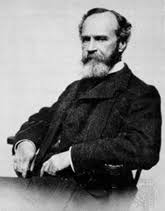Usage of CG in Sri Lanka
 The Father of career guidance Frank Parson developed the idea that an ideal career is based on matching personal traits like skills, values, and personality, with job factors, such as pay and work environment.
The Father of career guidance Frank Parson developed the idea that an ideal career is based on matching personal traits like skills, values, and personality, with job factors, such as pay and work environment.
When we look at the history of the practice of career guidance in Sri Lanka, the early 19 was not satisfactory. But later 19’s , with the intervention of the University Grants Commission, the former professor of Colombo University, professor. Keerthi Premadasa and Mr. Ajith Jayawardhena introduced career guidance to the University of Colombo and then to the other universities in the government university system. After that, the past pupil’s association of Royal College with the collaboration of private sector institutions started the EDEXCEL career fair to help school leavers to find their future careers after their A/L
In 2015 youth unemployment in Sri Lanka was 17% of the population. The unemployment rate was highest among students that passed the General Certificate of Education Advanced Level (GCE A/L) exam or obtained higher education.
In this sense, this should be noted that competition for scarce white-collar positions contributes significantly to the high youth unemployment rate.
The problem is according to the above theory, have we prepared our educational system to match and achieve economic goals, have we arranged or taken the necessary decision to prepare our human resources to cater to the country’s economic goals? Do they have enough skills to perform their job well? In a nutshell, do we have a proper strategic plan to develop our human capital to address the need of the job market in Sri Lanka?
If we look at the productivity of government service, can we satisfy their performance or the service they provide to the general public?
The problem is whether we guide the youth in their career development or do they have the right environment to perform. Do government policies make the environment for them to work and live a happy life?
We are a country full of natural resources. But people who live in this country have always a dependent mentality.
My point of view is how we can use or how we should use this career guidance to build the right attitude among our young generation.
- Introduce the concept of “why every job is very important and we should respect all the jobs and occupations we met in our day-to-day lives” to the primary.
Ex: Doctor=Farmer both are equally important for living beings and both are interconnected and interdependent.
- Fair value for the job anyone performs: this will reduce the competition for white color jobs.
Although individual attitudes about various jobs are something that should be developed from childhood, our social system poses children to think that if they do a white-collar job then only they can have a reputation. Otherwise, there will be no acceptance or reputation in society. In this, the social system motivates the parents to encourage the child to acquire educational qualifications for a recognized job in society and the parents motivate their child to compete in that social competition.
But the western world follows a completely different method. They teach their hygiene practices in school from a young age because they add respect and importance to the job of cleaning, thus developing a good attitude towards that job in the child.
These countries get to know the child’s interests through activities and provide the opportunity to choose a career in a field of their choice. Accordingly, they become experts in the chosen profession of their choice.
The Father of career guidance Frank Parson developed the idea that an ideal career is based on matching personal traits like skills, values, and personality, with job factors, such as pay and work environment.
According to Parson’s theory though personal factors such as skills and personalities are at a satisfactory level in human capital development in Sri Lanka but not pay and suitable work environment.
Though the career guidance in Sri Lanka is at a satisfactory level infrastructure needs a lot of improvement. The country should have structural reforms.
By
Nadishani Gomes,
Member, CCGA
